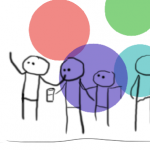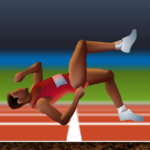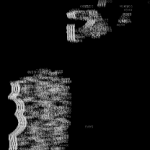Terrible Gameplay is Hilarious
August 12, 2011 - Mixtapes
Those of you who follow me on Twitter may have noticed that I’ve been tweeting links and brief assessments of all the experimental shorts I play. Most of these don’t end up getting full reviews here or at Robot Geek, but I like to record my thoughts on them anyhow. In addition to that, I’m going to start writing slightly longer comments on most of them in review roundup posts like this. They’ll go up every week or so, and I’ll have a little more space to talk about each game.
So, here’s what I’ve been playing this week! For a little background: this blog was pretty much on hiatus for a year, and during that time I kept saving links to games that looked interesting in case I ever started it up again. I did, and since then I’ve been working through this backlog at an agonizingly slow pace. That’s why, for example, today’s post contains a bunch of games from April’s Experimental Gameplay Project. Eventually I’ll catch up!
Second Person Shooter Zato
A clever idea, executed pretty well. Works like a 3D arena shooter, except that the camera is attached to the enemy’s head rather than your own. When there are multiple enemies, you get a splitscreen. To get rid of enemies, you have to spin around and shoot into each approaching camera. I found that it messed up my sense of right and left quite a bit. I kept turning around the long way, wasting precious time. I played until I died and took off. It’s a fun little game, and I dig the smirking Gravity Bone-esque style of my avatar.
Hero Test
The rest of today’s games are from the April EGP, which had the theme “Cheap Clones.” This theme produced a lot of parody games. Steve Gargolinski’s Hero Test is a fun one, which plays on Portal and other games in what Gargolinski aptly terms the “Robo-Asshole genre.” In this case, rather than a hostile guide who blocks your progress or encourages you with tough love, you have one who grudgingly lets you pass through a number of challenges at which you fail. It’s a nice little twist on the trope. Also, having an avatar who’s terrible at everything you do is just hilarious to me for some reason. I think QWOP is the funniest game ever made.
Escape the Cage
Another clever piece from Aaron Oldenburg, creator of Depression. Escape the Cage screws with room escape games by letting you play in two modes: one in which you try to escape a room by collecting a typically random pile of items, and one in which you stand outside the door and open it whenever you get impatient enough. The length of time you wait at the door is then saved and applied to the next game played in escaper mode. The result is that the escaper ends up just screwing around for a minute, and then the door opens. It’s an unexpected way of using mechanics to highlight the absurdity of the genre.
Fleaz
A baffling YouTube game that is, in theory, a parody of Nintendo DS pet games. I have absolutely no idea what’s going on with this game because I chose to play it in 3D. Doing so takes you to a medium-shot 3D view of a 25-year-old computer on which the game is playing in 2D. This is amazing, and while it made it impossible for me to read the text or play the game, I respect it aesthetically. And hey, that’s three really funny games in a row!


